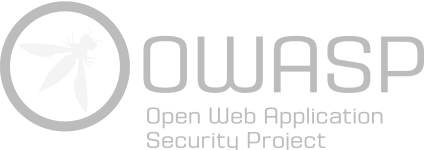Investigate and solve fraud, and increase recovery rates up to 80% with Salv Bridge
Learn moreFinancial crimes, often fuelled by technological advancements, have increasingly enabled bad actors to exploit vulnerabilities and erode the trust in the global financial system.
As a result, financial institutions face an increasingly complex challenge in addressing and responding to these evolving threats.
A prime example is authorised push payment (APP) fraud, which accounted for nearly £500 million in losses in the UK in 2022 alone. To tackle this issue, the Payment Systems Regulator (PSR) has introduced a new mandatory reimbursement scheme, which will make financial institutions liable for reimbursing victims of fraud already in 2024. This underscores the urgent need for collaborative approaches and tools that enable firms to detect anomalies in real-time payments, as well as exchange effective warnings, to detect and fight fraud as it occurs.
This article examines the top 10 information sharing tools and their application in different jurisdictions around the world. Such collaborative platforms offer crucial means for firms to collectively strengthen their financial crime prevention and fraud detection controls, and to uncover and disrupt criminal networks further down the payment chain.
Data and information contained in this article was collected from online sources during November 2023. If you want to learn more about how this article was written, or about the providers and services we discuss, get in touch.
Legal basis for information sharing
The legal frameworks supporting responsible information sharing between financial institutions are already in place. Article 6 of the UK GDPR sets a precedent for data sharing on the basis of legitimate interests. In the EU, with the introduction of the 6th AMLD, information sharing provisions will also be enabled. In particular,
- Article 6 of the UK GDPR allows the processing of data on the basis of legitimate interests. While it does not explicitly enable data sharing, it does point to a legal need in the member state law. As such, it creates a precedent for data sharing, as long as the processing does not disregard the essential rights and freedoms of the data subjects involved.
- The Economic Crime and Corporate Transparency Act 2023 (UK) includes provisions to facilitate information sharing between regulated firms for the purposes of preventing, detecting, and investigating economic crime. These provisions are intended to make it easier for firms to share information with each other without the fear of breaching data protection laws.
- The 6th Directive on Anti-Money Laundering and Counter-Terrorist Financing (AMLD 6) in the EU includes provisions to enable information sharing across 27 member states in 2024.
These provisions are intended to strengthen the EU’s anti-money laundering (AML) and counter-terrorist financing (CFT) framework by making it easier for law enforcement agencies and financial institutions to share information with each other.
How to choose the right information sharing tool
Selecting the right information sharing tool requires careful evaluation of participants, preferred sharing modes, data types, security, and more. The tool should seamlessly accommodate the specific needs of all entities involved, whether financial institutions, law enforcement, or regulators.
Consider the following aspects when choosing an information sharing tool for financial crime prevention and detection of fraud:
- Participants: identify the entities that will be involved in sharing information, such as financial institutions, law enforcement agencies, and regulatory bodies. The tool should be able to accommodate the specific needs and requirements of each participant.
- Mode of information sharing: determine the preferred method of information sharing, such as secure file transfer, direct messaging, or a centralised database. The tool should support the chosen mode of sharing while ensuring the highest standards of data security.
- Specific data points: clearly define the types of data that will be shared, such as customer identification information, transaction details, and suspicious activity reports. The tool should be able to handle the specific data formats and ensure accurate transmission and storage.
- Lawful basis: ensure that the information sharing tool complies with all applicable data protection laws and regulations. The tool should provide mechanisms for obtaining and managing data subject consent and ensuring lawful data processing.
- Data security: implement robust data security measures to protect shared information from unauthorised access, disclosure, modification, or destruction. The tool should employ industry-standard security protocols and access controls.
By carefully evaluating these factors and considering the components outlined in the FATF report, financial institutions can select an information sharing tool that aligns with their specific needs and effectively contributes to financial crime prevention efforts.
List of information sharing tools for financial institutions
A diverse array of secure, information sharing platforms has emerged to meet the needs for enhanced compliance worldwide. Below you will find an overview of the 10 best information sharing tools for financial institutions.
- Salv Bridge – collaborative investigations
- GSS – Global Screening Services
- KODEX - Law Enforcement Response
- COSMIC - MAS information sharing platform
- Transaction Monitoring Netherlands(TMNL)
- Incident Alert System (IAS) Netherlands
- Safe Financial Big Data Cluster (safeFBDC)
- EuroDaT – early-stage framework for information sharing
- TriBank Pilot UK — pre-suspicion private-private information sharing
- Private-private information sharing frameworks in the U.S.
Salv Bridge
Salv Bridge is a collaboration platform between fincrime teams of trusted network members. Within the platform, fincrime teams across multiple institutions can join forces and work as a single team. By promoting cross-border collaboration, Salv Bridge allows financial institutions to share information and take timely actions against financial crimes and fraud.
A key benefit of Salv Bridge is enabling the detection of fraud in real-time payments, by allowing the start of collaborative investigations immediately if and when a suspicion is established. This eliminates delays that often make funds unrecoverable and demonstrates the platform’s practical impact in combating financial crime.
Data security through advanced encryption: Security is a paramount concern when dealing with sensitive financial data. Salv Bridge prioritises security for sensitive financial information. It uses advanced encryption techniques so that neither Salv nor any third party can access the data shared on the platform. This provides confidence to users that their information remains protected.
Up to 80% success in the recovery of funds: The impact of Salv Bridge has been demonstrated through real-world implementation. Large banks, fintechs, and virtual asset service providers (VASPs) have reported up to 80% increase in the success rate of the recovery of funds after adopting Salv Bridge.
Salv Bridge strengthens real-time payment controls through collaboration, while encryption guarantees data privacy. The platform’s track record of improving fund recovery rates highlights its practical value for financial institutions.
GSS – Global Screening Services
Global Screening Services (GSS) pioneers a collaborative approach to sanctions screening. The platform operates at the forefront of compliance technology, providing financial institutions with an innovative cloud-native sanctions screening platform.
Launched in February 2021, GSS leverages industry-aligned standards and robust cloud architecture to streamline compliance with complex global sanctions regulations. The platform serves as a comprehensive source of all sanctions data, including lists from over 25 countries and territories, ownership and control data, and more, offering a unified toolkit to identify prohibited parties and suspicious transactions.
Kodex - Law Enforcement Response
Another significant technology provider in this domain is Kodex. Headquartered in Boston, it offers a specialised web platform tailor-made to streamline communication between companies and law enforcement.
Their robust, intuitive solution is purpose-built to securely handle the high volume of sensitive legal requests companies receive. Kodex provides trusted verification of all agents and requests, significantly easing the burden of responding.
With an impressive capability of over 6,000 agencies in more than 100 countries across sectors, the platform enables efficient case management for subpoenas, search warrants, emergency requests, and more.
Developed by experts in public safety and privacy, Kodex facilitates effective collaboration between companies and verified agencies worldwide while upholding rigorous confidentiality standards.
By centralising and securing complex cross-sector legal communications, Kodex enhances privacy, prevents harm, and establishes necessary trust between stakeholders working to combat financial crime.
COSMIC - MAS information sharing platform
COSMIC (Collaborative Sharing of ML/TF Information & Cases) is an innovative digital platform in Singapore that enables financial institutions to securely share information on potential financial crimes. Developed by the Monetary Authority of Singapore (MAS), COSMIC facilitates the exchange of customer red flags between institutions to enhance the detection and deterrence of money laundering and terrorism financing.
This aligns with Singapore’s commitment to global AML/CFT standards as a trusted international financial hub. By identifying suspicious activity patterns through responsible information sharing, COSMIC allows institutions to collaboratively safeguard the integrity of Singapore’s financial system. The platform reflects proactive regulations set by MAS and strategic partnerships with international bodies to continually strengthen the country’s robust regime against financial crime.
Transaction Monitoring Netherlands (TMNL)
Transaction Monitoring Netherlands (TMNL) is a private-private collaborative initiative created in 2020 by five leading Dutch banks — ABN AMRO, ING, Rabobank, Triodos Bank, and de Volksbank.
By pooling transactional data, TMNL employs advanced algorithms and machine learning to analyse payments across institutions, identifying suspicious activity patterns that may indicate money laundering or terrorist financing.
This collective approach allows more comprehensive detection of anomalies that could be missed by individual banks. TMNL generates real-time alerts to enable swift reporting and disruption of criminal networks. Along with core monitoring capabilities, TMNL offers extensive services to assist banks in meeting Dutch AML/CFT regulations.
Incident Alert System (IAS) Netherlands
The Incident Alert System (IAS) enables Dutch financial institutions to share critical post-suspicion information related to confirmed or suspected fraud incidents. This collaborative framework complements mandatory Suspicious Activity Report (SAR) protocols that require reporting potential financial crimes.
The IAS allows institutions to collectively identify fraud patterns, enhance prevention measures, and accelerate the disruption of criminal networks. In tandem with strong internal controls, risk management, and a culture of compliance, the IAS bolsters the Netherlands’ multi-layered approach to combating illicit finance.
It represents a proactive strategy to complement legal obligations. By facilitating vigilant information sharing, the IAS equips Dutch financial institutions to uphold integrity across the sector.
Safe Financial Big Data Cluster (safeFBDC)
The Safe Financial Big Data Cluster (safeFBDC) is an early-stage private-private information sharing prototype in Germany, supported by the Federal Ministry for Economic Affairs and Climate Action. safeFBDC aims to enable secure data exchange between financial institutions to drive AI innovation and enhance transparency.
This initiative, part of the BMWK innovation competition “Artificial Intelligence as a Driver for Economically Relevant Ecosystems,” aims to enable cross-institutional use of financial market data while preserving individual data sovereignty.
safeFBDC exemplifies Germany’s push towards a competitive, ethical digital ecosystem that preserves data sovereignty. This pioneering project fosters cross-organisational collaboration while advancing AI methodologies tailored for the financial sector.
EuroDaT – early-stage framework for information sharing
EuroDaT is an early-stage information sharing framework from Germany. The project aims to build a European data trustee that enables data sharing, with a focus on financial data specifically for the detection and prevention of fraud.
EuroDaT will act as an information platform for data transactions without centralised data storage. Its automated, encrypted processes facilitate collaboration while upholding transparency and data protection standards. By pioneering an ethical approach to data sharing, EuroDaT represents a significant step towards effective public-private partnerships in fighting financial crime.
EuroDaT enables pre-suspicion private-private information sharing between banks in a secure environment. It provides an innovative model for financial institutions to collaboratively address financial crime threats while upholding the highest data protection standards.
TriBank Pilot UK — pre-suspicion private-private information sharing
The TriBank pilot was a pioneering pre-suspicion information sharing initiative launched in 2019, which involved three UK banks (the data controllers) and one technology provider (FutureFlow).
By collectively analysing pseudonymised transaction data with advanced analytics, the pilot aimed to uncover suspicious activity patterns across institutions that could indicate potential financial crimes.
This collaborative approach addressed the challenges posed by data silos, providing a more comprehensive view to enhance detection and prevention efforts.
The pilot demonstrated that responsible sharing of information while preserving customer privacy is possible. Its success highlighted the viability of integrating similar approaches in daily operations, potentially becoming a regulatory expectation.
As an innovative model for proactive collaboration, the TriBank pilot marked a significant advancement in harnessing information sharing to combat financial crime.
Private-private information sharing frameworks in the U.S.
Private-private information sharing frameworks in the U.S. enable financial institutions to collaborate pre- and post-suspicion to identify and report money laundering and terrorist financing activities. Legal gateways like Section 314(b) of the PATRIOT Act provide liability protection for good faith sharing under a range of provisions:
- Section. 314(b) Safe Harbor of the USA PATRIOT Act: This safe harbour shields financial institutions, allowing them to freely share information without fear of liability, under certain conditions.
- Financial Crimes Enforcement Network (FinCEN) Exchange (FCE): The FCE enables seamless sharing of suspicious activities and insights between financial institutions and law enforcement.
- Financial Services Information Sharing and Analysis Center (FS-ISAC): As a nonprofit forum, FS-ISAC brings financial institutions together to collectively combat cyber threats and financial crime.
Information sharing FAQ
While information sharing brings many benefits, it also comes with challenges that financial institutions must thoughtfully navigate.
1. What are the FATF recommendations for information sharing between financial institutions?
Consider some of the suggested components of information sharing tools identified in the Financial Action Task Force (FATF) standards on information sharing:
- Data collection and aggregation: A suitable information sharing tool should efficiently collect and aggregate data from various sources, ensuring data accuracy and completeness.
- Data analysis and risk assessment: The tool should provide capabilities for analysing shared data to identify patterns, anomalies, and potential financial crime risks.
- Alert generation and case management: The user should be able to generate alerts based on risk assessments and facilitate case management for further investigation and action.
- Feedback and reporting: The software should provide mechanisms for collecting feedback from participants and generating reports to track the effectiveness of information sharing efforts.
2. What information sharing mechanisms are available to financial institutions right now?
Currently, there are several mechanisms available for financial institutions to share information. Financial intelligence units (FIUs) collect and analyse suspicious activity reports (SARs) from financial institutions and other reporting organisations. Private sector initiatives use advanced encryption to enable anonymous data sharing between institutions.
Bilateral data-sharing agreements can also be established between specific financial institutions. Additionally, cloud-based platforms utilising APIs have emerged to integrate bank systems and facilitate inter-institutional information exchange.
While channels exist, many institutions remain reluctant to share data. More work is needed to promote responsible collaboration and information sharing through secure platforms, clear regulations, and mutually beneficial agreements that preserve confidentiality.
3. What are the benefits of information sharing according to the FATF?
The Financial Action Task Force (FATF) has outlined numerous benefits of information exchange between financial institutions. The FATF notes that sharing data can enable earlier detection of suspicious activities that may be obscured when analysing information in silos.
It also allows faster tracing of illicit financial flows across multiple jurisdictions and institutions. Additionally, information sharing fosters more robust public-private partnerships between financial institutions and authorities.
This can increase the effectiveness of financial sanctions and reduce regulatory burdens through enhanced coordination. However, the FATF recognises these benefits depend on secure collaboration frameworks that address competitive and privacy concerns.
4. What are the barriers to sharing information between financial institutions?
There are several key barriers to information sharing between financial institutions. One major concern is privacy and data protection. Financial institutions are cautious about sharing customer data without explicit consent due to privacy laws. Competitive pressures also create reluctance to share data that could erode competitive advantage.
Additionally, technical limitations of legacy systems often hamper easy cross-institutional information exchange. There is also regulatory uncertainty surrounding rules for cross-border data sharing.
Finally, concerns exist over potentially tipping off criminals if information is improperly shared instead of handled through appropriate channels. Overcoming these barriers requires robust data sharing frameworks that ensure privacy, and clear regulatory guidance to facilitate responsible collaboration.
Financial crimes enabled by technology have threatened the balance of the financial system, as illustrated by the rise in APP fraud and scams. With upcoming mandatory APP fraud reimbursements in the UK, it is more vital than ever for institutions to collaborate on detection and prevention of fraud. While past hesitance around information sharing was understandable, oversight mechanisms and privacy-enhancing technologies now enable secure collaboration.
With appropriate safeguards in place, financial institutions can strengthen real-time payment controls and detect anomalies by exchanging effective warnings, ensuring protection against evolving financial crime threats.
Cutting-edge platforms like Salv Bridge enable real-time detection of fraud through responsible collaboration and information sharing backed by advanced encryption. This way, our customers were able to increase successful recovery of funds up to 80%.
To learn more about how Salv Bridge is leading the way in secure, ethical information sharing, get in touch with us today or visit our Salv Bridge page.




